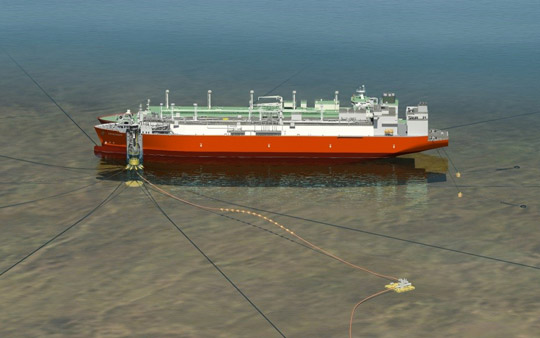Japan’s Mitsubishi (MC) has signed an agreement to acquire 25% stake in Bangladesh’s Summit LNG Terminal (SLNG) and to develop a liquefied natural gas (LNG) receiving terminal in the country.

Image: Illustration of LNG receiving terminal. Photo: courtesy of Mitsubishi Corporation.
The SLNG project involves installation of a floating storage and regasification unit (FSRU) 6km off the coast of the island of Moheshkali in the Cox Bazar District of Chittagong Division in Bangladesh.
Upon construction, the FSRU will receive and regasify LNG procured by Petrobangla, the national oil and energy company.
Construction of the terminal has commenced already. It is scheduled to be commissioned in March 2019 and will have LNG import volumes of about 3.5 million tons per annum.
The remaining 75% stake in SLNG will be held by Summit Corporation (Summit).
Mitsubishi said in a statement: “While gas-based generation accounts for approximately 60% of total generation, domestic natural gas production is starting to decline.
“The country is therefore promoting LNG imports as part of its national energy policy. Bangladesh will start importing LNG in 2018, with a targeted import volume of 17 MTPA in 2030.”
In addition to the SLNG project, Summit and Mitsubishi agreed to jointly pursue projects across the LNG value chain from LNG supply to power generation in Bangladesh.
The firm said: “MC intends to simultaneously generate economic, societal, and environmental value by contributing to the stable supply of energy and to further economic growth in Asian countries through business associated with LNG, which has relatively low environmental impact.”
Earlier this year, Mitsubishi and Summit have agreed to jointly build an integrated LNG-to-Power project.
Under the Memorandum of Understanding (MoU), the firms agreed to develop onshore LNG receiving terminal with a regasification capacity of up to 1,500 million cubic feet per day, associated LNG supply, and construct a 2,400MW gas-powered thermal power plant.
Summit will be the majority owner of the project holding 55% equity stake while Mitsubishi and GE will own 25% and 20% stakes respectively.
The Bangladesh firm expects the project, which is planned to be completed by 2023 beginning from 2019, to double its generation capacity.
